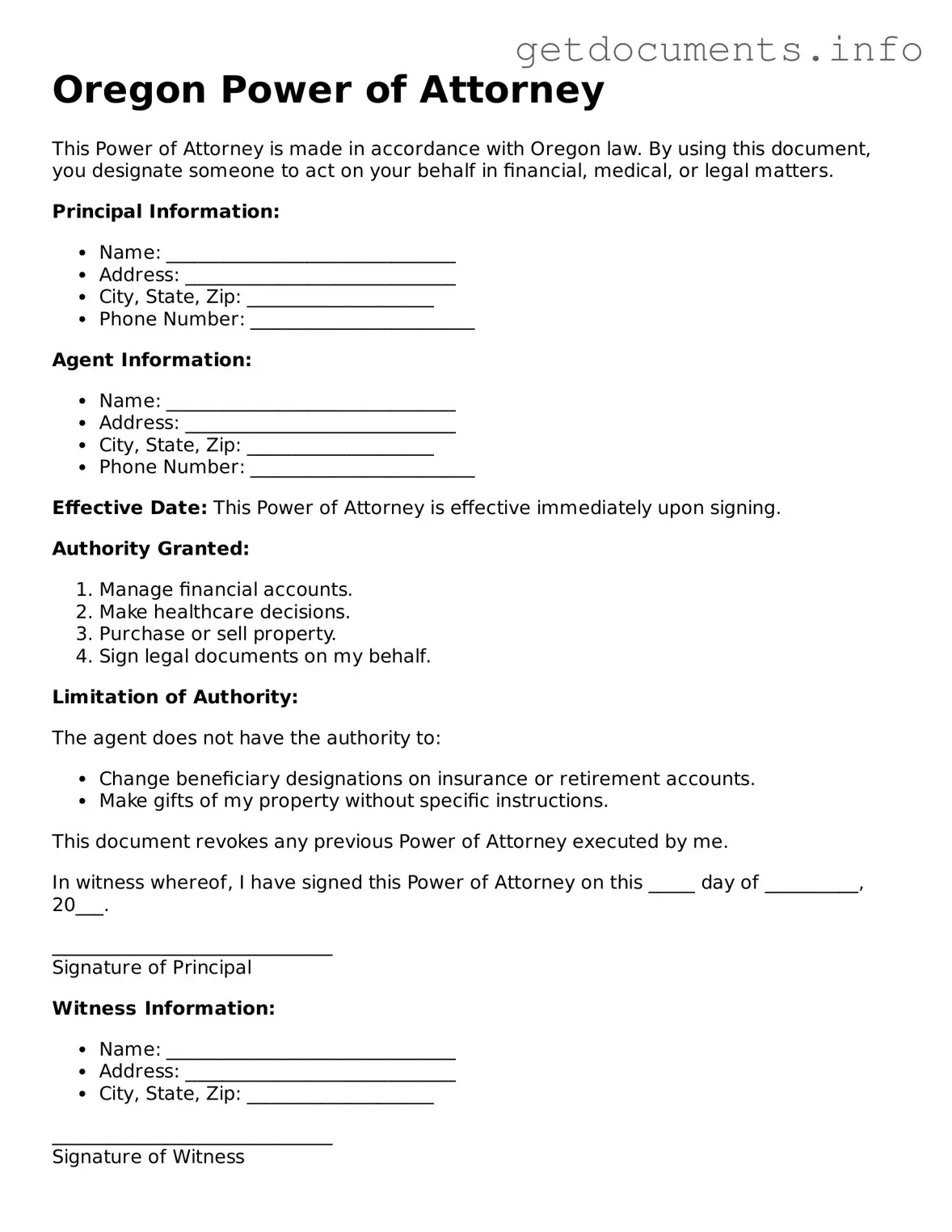Free Power of Attorney Template for Oregon
The Oregon Power of Attorney form is a legal document that allows an individual, known as the principal, to designate another person, referred to as the agent, to make decisions on their behalf. This form is essential for ensuring that your financial and health-related matters are managed according to your wishes, especially in situations where you may be unable to communicate your preferences. If you're ready to take control of your future, start by filling out the form by clicking the button below.
Access Power of Attorney Editor

Free Power of Attorney Template for Oregon
Access Power of Attorney Editor
Got places to be? Complete the form fast
Fill out Power of Attorney online and avoid printing or scanning.
Access Power of Attorney Editor
or
⇩ PDF File
